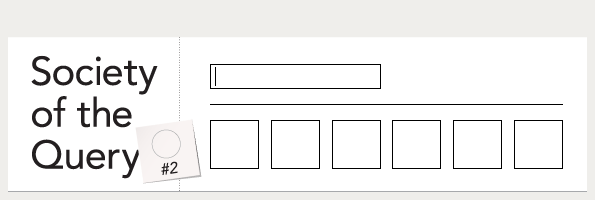The Ippolita Collective brought a humorous and refreshing change of perspective into the attempt to search and formulate solutions for one of the issues addressed by the second session of the Society of the Query conference, namely Digital Civil Rights. They proposed to change the “what” style of questioning associated with positions of domination, as in “what is to be done?” into a “how” style of approaching issues in order to avoid surrendering to fear, paranoia or the desire to control and protect every aspect of your interactions with technology. While if you ask yourself the “what” questions you may end up in paranoid positions such as luddism or technocracy, if you have the “how” attitude, then you are a curious individual, with a desire to learn and to understand, to share and exchange knowledge with others. You may even be some sort of hacker.

The “how” attitude, an attitude which will bring you to media literacy, is, as the Ippolita Collective explains, a convivial model. As opposed to the industrial model of productivity, the convivial model implies maintaining autonomy, creativity and personal freedom in interaction with individuals or technology. How would one build up this model of conviviality? The answer, according to the artistic and research group is to build convivial tools! A convivial tool is not something that you can purchase but something that you have to build yourself in order to have it match your own needs. It is something that you enjoy creating, like making your own wiki.
 Can the convivial attitude be applied in approaching our Google/ digital rights/ privacy issues? The Ippolita Collective already has, and the result is a tool named SCookies which you can download for free here. The application takes its slogan, “Share your Cookies!” literally and mixes your cookies with the cookies of other individuals who have installed it, in order to alter your profile and render it unreliable. While it may not be the solution, the SCookies application is emblematic of a style, an attitude of approaching an issue such as digital civil rights.
Can the convivial attitude be applied in approaching our Google/ digital rights/ privacy issues? The Ippolita Collective already has, and the result is a tool named SCookies which you can download for free here. The application takes its slogan, “Share your Cookies!” literally and mixes your cookies with the cookies of other individuals who have installed it, in order to alter your profile and render it unreliable. While it may not be the solution, the SCookies application is emblematic of a style, an attitude of approaching an issue such as digital civil rights.
The Ippolita Collective has recently finished a book on Google, The Dark Side of Google, which you can download for free from their website.


